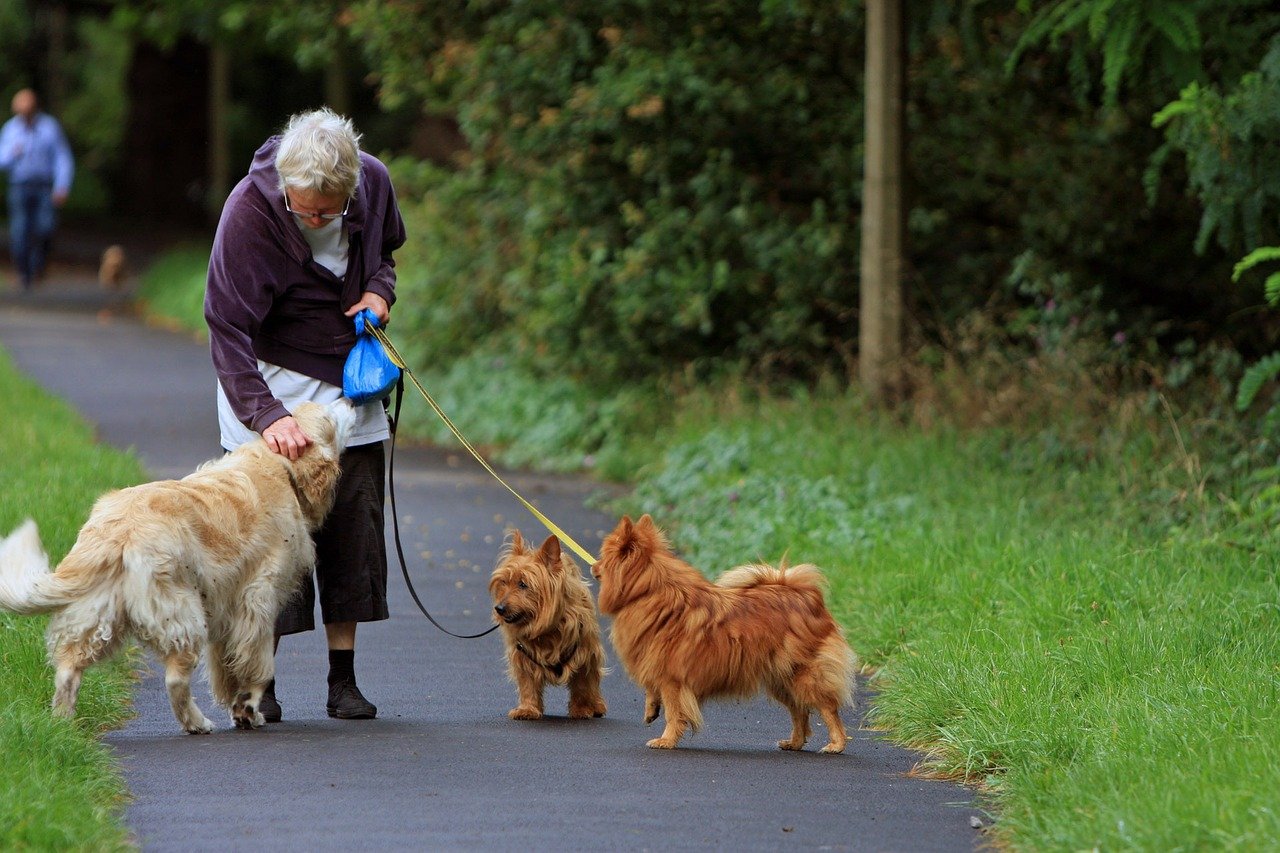When is it too old to have a dog?

Whilst out walking with Ziggy today I got chatting with a chap out with his puppy. Our conversation turned towards his elderly in-laws. This prompted me to write this.
The in-laws were in their late 70’s, one was nearly 80. they were having problems with their current dog. This couple had had dogs all of their married life and had decided to get another one. So, they now had an 18-month-old (got it when it was a puppy), lively, labrador. A lovely family dog but one that needs a lot of exercise and appropriate training. The couple were getting a little frail and were finding it difficult to handle their canine charge.
As the dog has grown to adulthood he has become more difficult to handle. He has poor lead skills and bad recall. The couple is frightened to let him off the lead for fear of losing him. The son-in-law is worrying that this boisterous dog will pull one of his owners over and injure them. Legitimate concerns. A number of issues come to mind.
First and foremost, should this couple have got this dog in the first place? Probably not. It would appear that their physical capabilities do not enable them to handle their dog. In this case, if asked, I would have suggested a smaller dog or, indeed, an older rescue dog that would be less challenging to handle.
Let me be clear, I am not suggesting older people should not have dogs – far from it. However, as we get older, we need to evaluate our capabilities and, think carefully about the type of dog we can cope with. It is little point thinking that because we have had large dogs over the years we should continue to do so are we get older with, possibly, fading physical ability.
Back to the dog in question. A good behaviourist or trainer would be able to help this couple. It is never too late to take steps to train the dog in the desired behaviours. In this case, calmness, lead walking and recall as the barest minimum.
Another alternative, worth considering, is looking into how you can meet, on occasion, dogs that can address your need for canine companionship, without the long term burden of having to care for them. My own in-laws are a good example. Both are in their late 80s now. They are no longer capable of looking after a dog, no matter how much they love them. The solution is regular visits by me, Sue (their daughter) and, of course, Ziggy (our dog). They get enormous pleasure from this – two or three times a week. My father-in-law loves to talk about dogs, having been a metropolitan police dog handler when he was younger.
Food for thought.
